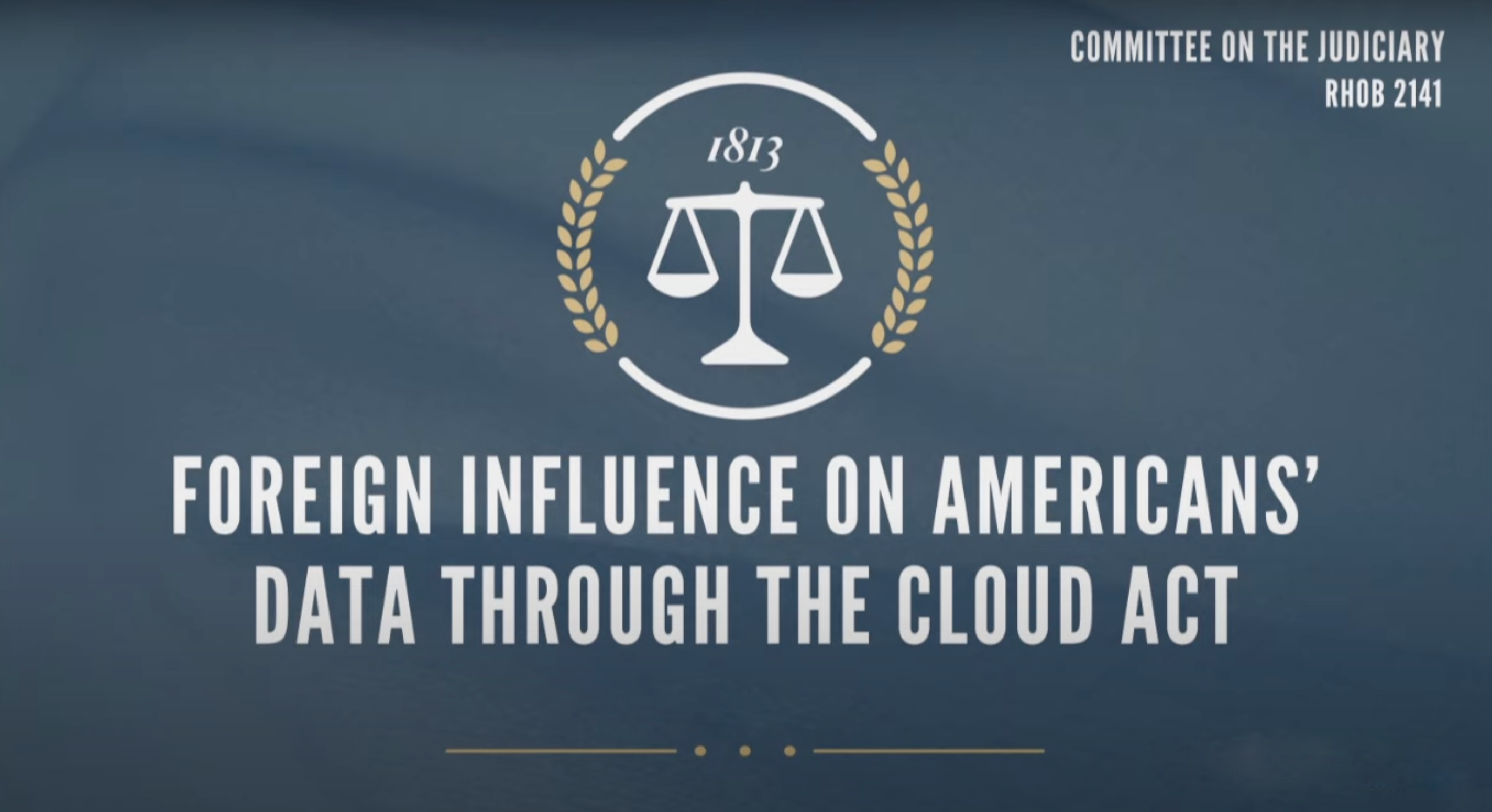The CLOUD Act: Safeguarding Data Privacy Amidst Surveillance
On Thursday, June 5, 2025, at 10:00 a.m., Greg Nojeim delivered crucial testimony before the House Judiciary Subcommittee on Crime and Federal Government Surveillance. The hearing, aptly titled “Foreign Influence on Americans’ Data Through the CLOUD Act,” focused on the implications of the controversial data access agreement between the United States and the United Kingdom under the Clarifying Lawful Overseas Use of Data (CLOUD) Act.
Background of the CLOUD Act
Enacted in 2018, the CLOUD Act was designed to streamline data access for law enforcement agencies across borders. In an increasingly globalized digital age, the need for swift access to data for criminal investigations has become paramount. However, this act has garnered scrutiny due to its broad scope, allowing law enforcement agencies to demand data from service providers, regardless of where that data is stored. While the intension is to bolster national security, the implications for civil liberties and privacy are profound.
The Missing Piece: Encryption Safeguards
One of the key criticisms of the CLOUD Act is its failure to adequately safeguard encryption services. Encryption serves as a fundamental barrier against unauthorized access to private data, ensuring users’ communications remain confidential. Nojeim’s testimony highlighted a glaring gap: the act allows countries like the UK to issue surveillance demands to U.S. providers without providing necessary protections for encryption. This situation opens the floodgates to potential violations of privacy for not only Americans but users around the globe.
UK’s Demands and Backdoor Entrapments
The UK was the first country to leverage the CLOUD Act’s benefits, demanding that Apple incorporate a backdoor in its encrypted cloud backup service. This requirement poses significant risks, as it essentially compromises the integrity of the security that encryption provides. The repercussions expand beyond British borders, affecting users from various jurisdictions—including the United States. This concern escalates the urgency for revisions to the CLOUD Act, emphasizing the need for Congress to prohibit such backdoor mandates outright.
Silence on Encryption: A Dangerous Overlook
The lack of explicit language regarding encryption in existing CLOUD Act agreements raises alarms. This silence has effectively sanctioned troubling practices by countries engaged in these agreements. Without clear stipulations for protecting encryption, service providers may find themselves coerced into compromising their user’s privacy and security. Nojeim’s testimony pointed to this loophole as dangerous territory, calling for improved clarity and protections in future agreements.
Leveraging Power for User Protection
The United States holds a unique position in the global digital landscape, allowing it to use its influence to advocate for stronger encryption protections in the context of the CLOUD Act agreements. The ability to maintain robust encryption standards should be a priority, ensuring that user privacy remains uncompromised. Nojeim argued that it is not only feasible but essential for the U.S. to leverage its international relationships to advocate for encryption safeguards.
Proposed Amendments to the CLOUD Act
For meaningful change to occur, Congress must step in and consider amending the CLOUD Act with an eye towards encryption. Nojeim suggested specific changes that would prohibit any agreements with nations whose laws endorse backdoor access to encryption. These amendments would serve to protect the civil liberties of Americans and users worldwide. If the Department of Justice (DOJ) does not proactively address these issues, it falls on Congress to enact necessary reforms that prioritize user privacy.
Further Exploration
This pivotal testimony underscores a critical dialogue surrounding the intersection of technology, law enforcement, and privacy rights. The actions of the U.S. in regulating data access and reinforcing encryption protections have far-reaching consequences, both domestically and internationally. With the stakes so high, continued advocacy and legislative scrutiny are essential for safeguarding civil liberties in an increasingly interconnected world.
For a deeper understanding, a full transcript of Greg Nojeim’s testimony is available for those who wish to explore the intricacies of this pressing issue.


